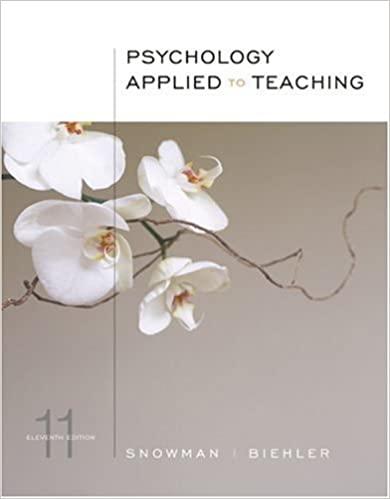Question
To understand the difference between a best practice and an evidence-based practice, it is important to define each concept. A best practice can be described
To understand the difference between a best practice and an evidence-based practice, it is important to define each concept. A best practice can be described as a practice that has been found to be effective yet is not always supported by scientific research (Driever, 2002). For example, a best practice that is used in counseling is providing a warm and welcoming environment to help clients feel comfortable and open to being vulnerable and sharing. In healthcare, an example of a best practice is utilizing compassion with patient care to increase patient satisfaction. Evidence-based practices can be defined as practices that are supported with scientific research and need this research to be proven effective (Driever, 2002). An example of an evidence-based practice would be utilizing therapeutic approaches such as Cognitive-Behavioral Therapy or Dialectical Behavior Therapy to overcome some mental health issues. Another example of an evidence-based practice is the use of medications for mental health issues. This is said because these medications need to be heavily researched to ensure their effectiveness in helping with certain mental health issues. The major difference between a best practice and an evidence-based practice is the amount of research needed to prove effectiveness. In my opinion, many holistic or unconventional practices can be understood as best practices as they may be as heavily researched as other medical and clinical practices are.
What can you conclude from this statement?
Step by Step Solution
There are 3 Steps involved in it
Step: 1

Get Instant Access to Expert-Tailored Solutions
See step-by-step solutions with expert insights and AI powered tools for academic success
Step: 2

Step: 3

Ace Your Homework with AI
Get the answers you need in no time with our AI-driven, step-by-step assistance
Get Started


